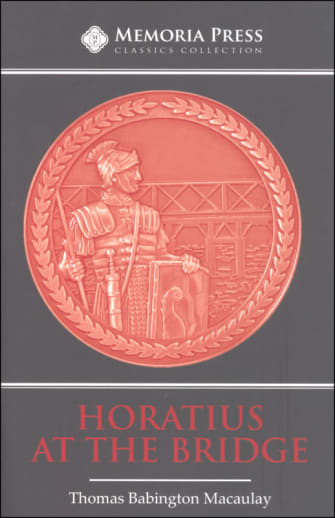The Lays of Ancient Rome are five ballads written by the Englishman Thomas Babington Macaulay and published in 1842. These ballads (lays) celebrate events and heroes in ancient Roman history, and Horatius at the Bridge is the most famous of Macaulay's ballads. Ballads are narratives that are composed and sung orally. In more primitive societies, before the development of writing, they were an essential means of remembering and celebrating the past.
There are, however, no existing ballads from the ancient Romans. Macaulay thought these ballads must have existed and probably served as a primary source for Roman historians, such as Livy. And so Macaulay wrote The Lays of Ancient Rome, ballads that celebrate famous events in Roman history, written in a style and meter that would be appropriate for the ancient Romans. The Lays carry messages about values, patriotism, courage, and sacrifice that Macaulay considered relevant to his own time. Horatius at the Bridge is the ballad that "might have been," had it not been lost in time. Macaulay published his Lays in 1842, and considered them a trifle. His trifle was a publishing phenomenon and since its first release, has never been out of print.

